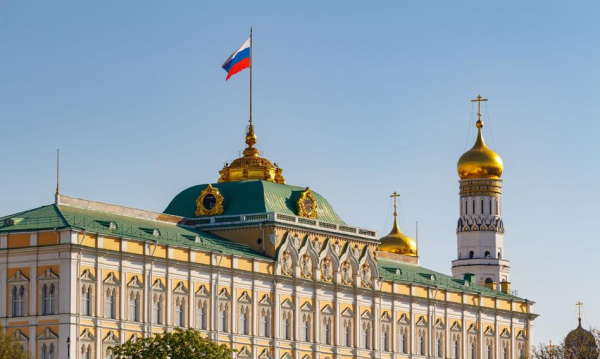One of the things Russia has taken from me is my imagination. I'm unable to write fiction now,” Ukrainian writer Oleksandr Mykhed told PAP. He believes that even after the war ends, Russia will not disappear, and its hatred towards neighboring countries will not disappear either.

PAP: What inspired you to write the book “Kotek, Kogutek, Szafka”?
Oleksandr Myched: The source of inspiration was the liberation of the Kyiv Oblast from Russian occupation in April 2022. It was important to record the terrible crimes committed by Russian troops at that time. Besides, my parents spent three weeks under occupation in Bucha. And the kitten, rooster, and cupboard are symbols that Ukrainians associate with the beginning of a full-scale war. The cupboard, along with the ceramic rooster, was featured in a very popular photo from a destroyed apartment building in Borodino. Virtually nothing remains of the building, except for that hanging cupboard. The kitten's real name, Gloria, was found in a ruined apartment on the 6th or 7th floor—alone, as if on a desert island.
PAP: Where did the idea come from to tell such tragic events in a fairy tale format?
OM: For my own purposes, I call it a non-fiction fairy tale. I assumed that the three titular characters meet in one apartment, talk, and might influence the course of events during the war and the relationship between the granddaughter and grandmother. This theme of intergenerational experience of surviving the war was important to me. A significant portion of the book is based on documentary material, as my parents told me many stories from the occupation, and there are also images familiar from the media. Fairy tales are a children's genre, but I think they are suitable for adult readers, for children over 11.

PAP: “A green, green town” – that's how you describe Borodzianka before the full-scale invasion. Today, it's a town severely damaged by the war, symbolized by a monument to Shevchenko with a bullet wound in his head. What was life like there before?
OM: I don't know Borodzianka as well as I do Hostoml or Bucha, where I lived for a few years. Before the full-scale war, Bucha had a green city PR. Paradoxically, the Russian troops in 2022 were quite surprised that the outskirts of Kyiv could be so developed. They were horrified by the affluence and standard of living. It's also important to remember that these towns near Kyiv had previously become home to internally displaced persons from Donetsk, Luhansk, and Crimea, who had already survived the occupation and lost their homes in 2014. They began rebuilding their lives in the outskirts of Kyiv.
PAP: The war forever changed the perception of Bucza, Hostoml, Irpień, and Borodzianka, as they are associated with genocide and the evil of war. Is it possible to return to this pre-2022 image?
OM: I think it's pointless to talk about returning to the past, because these places have experienced a tremendous loss, on various levels. I'm referring to the sense of security, the loss of loved ones, property, and buildings. I think returning to what once was is impossible. The residents who remained there want to move on, but at the same time, it's impossible to separate ourselves from these tragedies, because the reminders are constantly present, for example, in the demolished buildings. Emotionally, these people live on a borderline, at the crossroads of experiences.
PAP: The book features the character of Uncle Andriy, who, after the Russian invasion—for the first time in his life—knows exactly what he's doing: he leaves with a backpack and enlists in the army. Do you think that for some, this war has become an impetus to find meaning in life?
OM: Andriy is a striking example of someone who found themselves during war. Because it's a time when there's no room for doubt or hesitation. It's black and white; there's war and a country to defend. I think there are indeed a large number of ordinary people who lived in a certain passivity, inaction, and during the war, they found themselves well in this kind of brotherhood, in common defense—in the whirlwind of history, they found themselves. This doesn't mean they'll be soldiers forever, because after the war, they'll probably return to their civilian professions, just with a different experience.
PAP: Why did you enlist in the army in the first days of the war? In “Codename for Job” you admitted that you wouldn't hold a weapon until 2022.
OM: Such a decision is made by someone who understands that everything before has lost its meaning. It's a kind of ground zero, where you take on new challenges. There was simply no other option; my parents were under occupation in Bucha, and the Russians were advancing, so it was obvious to me that action had to be taken. I understood that Russia meant shelling, crimes, material destruction, but also an attempt to annihilate Ukrainian culture. The importance of culture in shaping a nation's identity is demonstrated by the crimes of Russians who destroy monuments, steal works of art, and attack libraries.
PAP: Can you describe what your service in the Armed Forces of Ukraine involves?
OM: I can't say anything, but the first months of the war are long behind us. The guys I started with were in the Chernivtsi Territorial Defense Battalion. Among them were, among others, an Amazon truck driver, someone who had previously repaired air conditioning, as well as doctors of science and professors. They all participated in the de-occupation of Kharkiv, then at Bakhmut, and now they're in the Sumy Oblast, and they never thought they'd be dedicating their lives to the army. Some rose to high-ranking officers.
PAP: Can you imagine writing about something other than the war in Ukraine now?
OM: One of the things Russia has robbed me of is my imagination. I can't write fiction now. The context of a full-scale war, the incursion of Russian forces, is constantly present, and it's impossible to disconnect from it—it's important to me as a citizen, a writer, and a human being. Therefore, I have a rather closed space for writing fiction, but if you're asking about other experiences, I get great pleasure from reading autobiographical texts about childhood. I'm just finishing writing a piece for a Christmas anthology about the celebration of holidays in Ukraine before the change from the Julian to the Gregorian calendar. The mechanism of remembering how I celebrated with my parents as a child is very important to me. Perhaps it's a form of escapism for someone who lives in memories, but also for an author who remembers.
PAP: In “Codename for Job,” you write about survivor's guilt, which is reminiscent of accounts from World War II. How do you cope with the feeling that I survived while others didn't?
OM: I don't know how to live with this. The question of survivor guilt is part of a larger context. Ukrainian poet and military woman Jaryna Czornohuz explains our state with the word “pisliażytia” (lifetime). Literally translated into Polish, it would be “zypożyciu” (lifetime) – written together. In my opinion, returning to a previous life is impossible, because that life is already over, and now “pisliażytia” continues. It also encompasses survivor guilt and the endless adaptation of civilians to increasingly severe shelling. It is an existence under wartime conditions. You could say it's a compressed spring of emotions that sometimes finds an outlet in everyday life, but can never fully relax. You're constantly waiting for the next attack, for what will happen after the air raid alert.
PAP: You also mention the role of post-memory. What task do you see for the future generation in this context?
OM: On the one hand, we know that children always rebel against their parents, and there's a risk that a moment may come when they won't accept the reality or the memories we want to pass on to them. On the other hand, we see a wonderful generation of young teenagers – wonderful, strong, believing in a powerful and free Ukraine. It's clear that they're taking their cues from their parents, loved ones, and friends. Some of them are children of military personnel or fallen soldiers. It's a memory and dignity they will carry forward.
I'm very optimistic about children born during the war. Being a child and growing up under martial law is absolutely gruesome, difficult to imagine, yet at the same time, it provides a foundation – a guidepost that will allow Ukraine to continue to exist. This is crucial because we can share with them an understanding of how vast and terrifying a phenomenon Russia is and the immense threat it poses to all of us. This threat is not only physical – it threatens our lives daily – but also metaphysical. Even after the war ends, Russia will not disappear, and its hatred towards neighboring countries will not disappear either.
Oleksandr Mykhed is a Ukrainian writer. He was born in Nizhyn. He is a member of the Ukrainian PEN Club and the author of ten books. His books, “I Will Mix Your Blood with Coal: Understanding the Ukrainian East” and “The Codename for Job: Chronicles of the Invasion,” have been published in Polish. The Lublin publishing house Warsztaty Kultury recently published a translation of his book, “Kotek, Kogutek, Szafka.” It is also available as an audiobook. Before the full-scale invasion, he lived with his family in Hostoml, Kyiv Oblast, for four years. Their home was destroyed by a Russian shell in the first week of the war. He currently serves in the Ukrainian Armed Forces.
Gabriela Bogaczyk (PAP)
gab/ dki/






